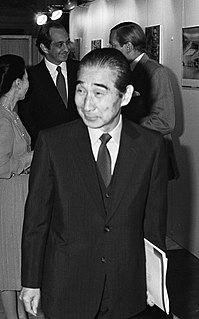A Quote by Louis Kronenberger
From the failure of the humanist tradition to participate fully or to act decisively, civilizations may perhaps crumble or perish at the hands of barbarians. But unless the humanist tradition itself in some form survives, there can really be no civilization at all.
Related Quotes
One reason which I find particularly fascinating about Israel is this. There is no such thing as a Jewish civilization. There is a Jewish culture, a Jewish religion, but there is no such thing as a Jewish civilization. The Jews were a component basically of two civilizations. In the Western world, we talk about the Judeo-Christian tradition and you talk about the Judeo-Islamic tradition because there were large and important Jewish communities living in the lands of Islam.
The urge to break with a tradition is only appropriate when you're dealing with an outdated, troublesome tradition: I never really thought about that because I take the old-fashioned approach of equating tradition with value (which may be a failing). But whatever the case, positive tradition can also provoke opposition if it's too powerful, too overwhelming, too demanding. That would basically be about the human side of wanting to hold your own.
Because Roman civilization perished through barbarian invasions, we are perhaps too much inclined to think that that is the only way a civilization can die. If the lights that guide us ever go out, they will fade little by little, as if of their own accord.... We therefore should not console ourselves by thinking that the barbarians are still a long way off. Some peoples may let the torch be snatched from their hands, but others stamp it out themselves.
When tradition is thought to state the way things really are, it becomes the director and judge of our lives; we are, in effect, imprisoned by it. On the other hand, tradition can be understood as a pointer to that which is beyond tradition: the sacred. Then it functions not as a prison but as a lens.







































